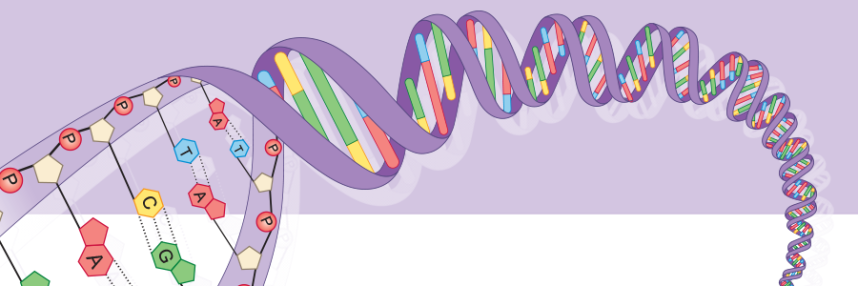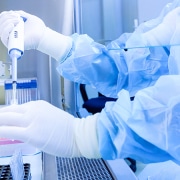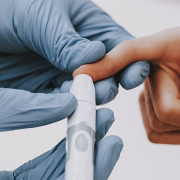Whole genome sequencing for diagnosis of infants
A US study has investigated whether panel testing or whole genome sequencing is more likely to provide a molecular diagnosis, and we consider how the results apply to the NHS
The 2019 NHS Long Term Plan made a commitment to offering whole genome sequencing (WGS) to “seriously ill children who are likely to have a rare genetic disorder, [and] children with cancer…”. Now, a new study from the United States that is looking at very similar patients provides more evidence that WGS is more likely to provide a diagnosis than other forms of genomic testing.
Whole genome sequencing or targeted panel test?
The study looked at results from 400 infants under 12 months old across six US hospitals who were hospitalised with suspected genetic disorders. For the purposes of the study, two simultaneous tests were undertaken for each child: a targeted panel test for disorders that present in infancy and WGS. As part of the study, the participants’ birth parents’ genomes were also sequenced where available.
The researchers investigated which method was more likely to provide a molecular diagnosis. The study showed that the panel test returned a diagnosis for 27% of the participants, while WGS provided a diagnosis for 49% of the participants.
Co-Principal Investigator Dr Jonathan Davis, Chief of Newborn Medicine at Tufts Medical Center, Boston, Massachusetts said: “Successfully diagnosing an infant’s genetic disorder as early as possible helps ensure they receive the best medical care. This study shows that WGS, while still imperfect, remains the gold standard for accurate diagnosis of genetic disorders in newborns and infants.”
Getting results quickly
One of the downsides that the US study found was that it can take longer to receive WGS results compared to panel tests – about six days for WGS compared to four days for panel tests, on average.
It is important to note that due to the differing structures of the US healthcare system and the NHS, the timeframes in the study may not be directly comparable to UK testing timeframes.
WGS takes longer because of the large amount of data it produces that needs to be filtered and interpreted by bioinformaticians and clinical scientists. Any delay in diagnosis can make a difference to outcomes when a child is critically ill. The NHS already has a rapid WGS service for the sickest children, which can return results in days rather than weeks.
This service is run by the Exeter Clinical Laboratory, part of the South West Genomic Laboratory Hub, the same facility that previously pioneered a rapid exome sequencing service for critically ill children.
Wider use of whole genome sequencing
Rapid WGS is separate from the Newborn Genomes Programme, which is utilising WGS to screen 100,000 babies for actionable genetic conditions.
It is important to be clear about this distinction because the majority of babies involved in the Newborn Genomes programme will not receive a diagnosis – because they are perfectly healthy! For those who do receive a diagnosis, the focus will be on treatment or other interventions that can reduce future harm, rather than being an indication that the child is already ill.









